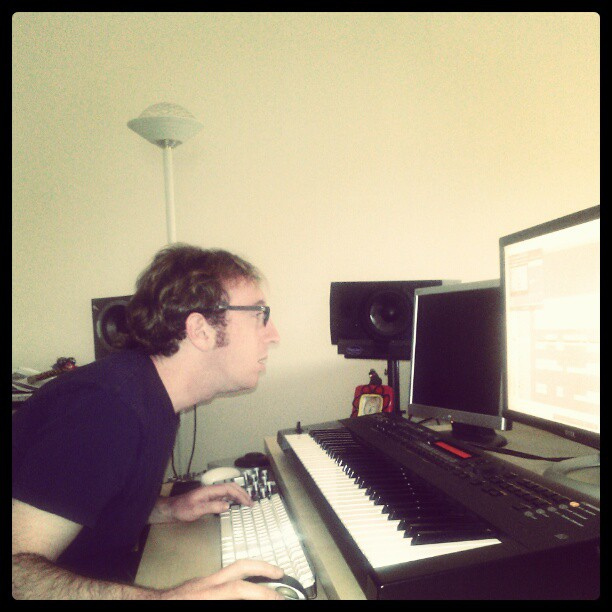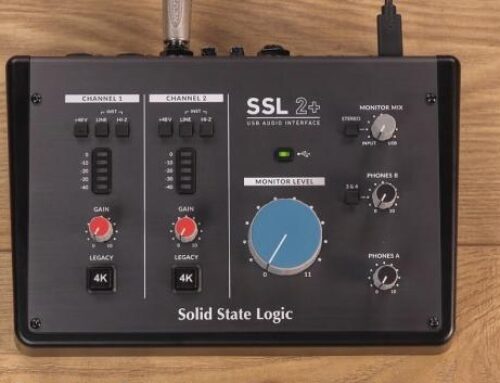by Fred Kron
At the age of one, when most infants are pounding on the table, I was pounding out the notes to “Happy Birthday.” My childhood was spent studying Beethoven, Brahms, Madonna, and Hall & Oates, as well as the super catchy tunes of television composing legend Mike Post. Did I practice? Sure, sometimes. But did I play what I heard on the radio and television? All the time! From pop tunes to TV themes, movie scores and obscure jingles, I tried to soak it all in. My college years were spent at the University of Miami, studying and earning a degree in Jazz Piano Performance. But once I became aware of multitrack recording and sequencing, I was hooked. My official transition from performing into the world of composition came through a college friend who had just graduated and landed a job with Happy Madison, Adam Sandler’s production company. Without my knowledge, he had bothered someone there just long enough for them to ask me for a demo reel, which I thankfully had been working on. A job was offered to me by Adam Sandler to compose music for a batch of Internet short films, and so began my career as a film and television composer. Here are five things I’ve learned along the way.
- When in Doubt, Ask
Trying to read your clients’ minds and understand what they want from you for their project (musically, emotionally, and stylistically) can seem a bit challenging at first, but with experience and learning what questions to ask, you can greatly improve your chances for a successful collaboration. These questions can range anywhere from what sonic palette you might choose to whether the client is looking for a textural vs. melodic approach.
- Know Your Studio and Sounds
Everyone works a bit differently, but many composers spend more time than they’d ever care to admit working on templates (preloaded instrument tracks, mix routing, and EFX) so that sounds are dialed in, and always at their fingertips when composing. I have some templates, but I usually like to start with a blank page. I don’t see this as a disadvantage, as I’ve made it a point to become extremely familiar with my sound libraries and plug-ins, and often the extra 15 seconds it takes me to load a sound can be time spent thinking of what part I might lay down, or what I might order for lunch.
- Don’t Be Married to Anything
Sure, in your heart of hearts, you know that what you’ve submitted on your first pass is “pure gold,” but everyone has an opinion (and, unfortunately, they’re probably making more money than you are), so it’s a good idea to let them express theirs. I’m only half kidding. Making changes is part of the gig! Sometimes, requests for changes come in the form of statements like, “Yeah, definitely add a crescendo there, and make it really soft so we can barely hear it.” That’s one of my personal favorites. More often than not, collaborators give good notes that can really make the cue or piece better.
- Always Be Improving
Prior to my composing career, my background was mainly as a pianist and keyboardist. That part of my skill set has always been extremely advantageous to me, even if I’m landing a writing gig; instant demonstrations are always impressive and create great networking opportunities. It also helps me work faster and more efficiently. For example, if I’m working on an orchestral composition, the less time I spend performing the parts, the more time I can spend on tweaking controllers and geeky MIDI things for realism.
- Remember: Composing Is Collaborative
You are composing music to make the picture better, and that is the only acceptable outcome. The people hiring you all have unique personalities, varying degrees of musical knowledge (and vocabulary), and different approaches to their projects. Embrace these differences, as they are often what keeps each project unique and fresh.
[Permission Reprint by Keyboard Magazine]
Fred Kron is a Los Angeles-based keyboardist, composer, arranger, and orchestrator, who currently has music in more than 12,000 episodes of television. His current projects include original composing for Fox, touring with Colin Hay (Men at Work), and subbing on keyboards for ABC’s Jimmy Kimmel Live!
For more information on the IAMA (International Acoustic Music Awards), please go to: http://inacoustic.com




